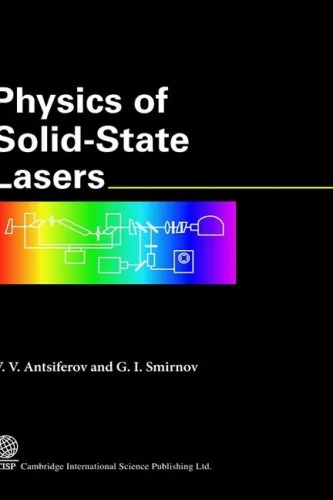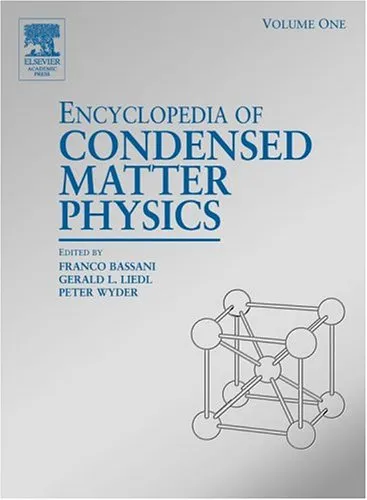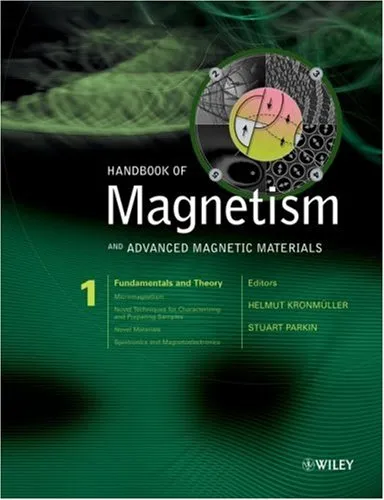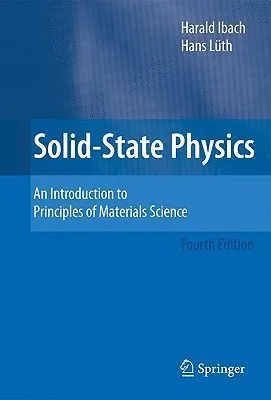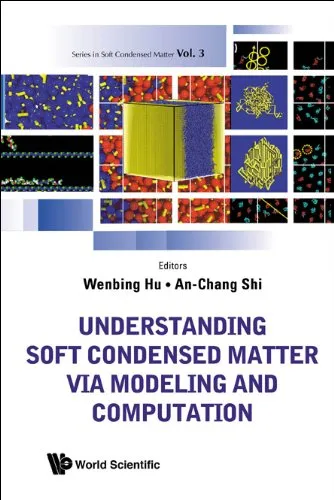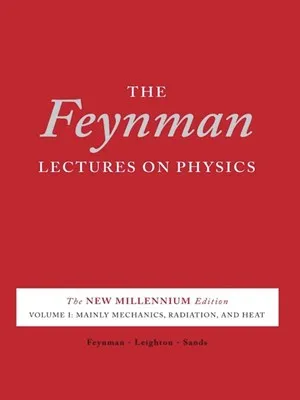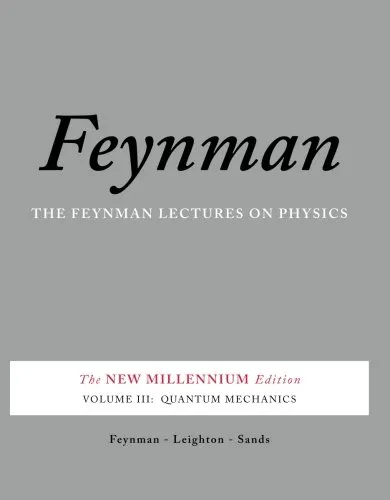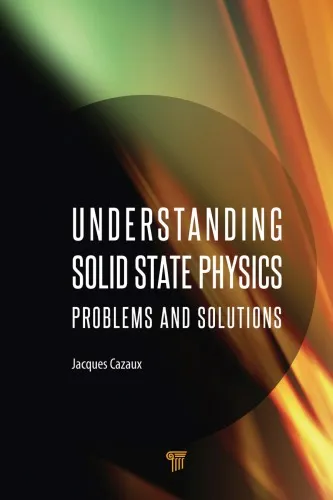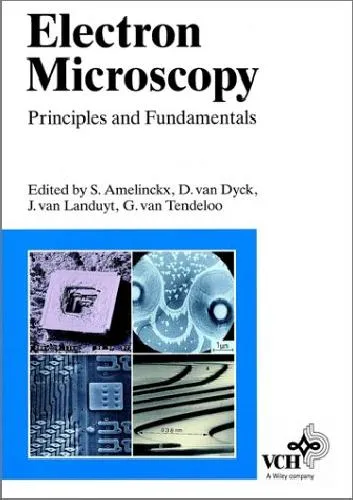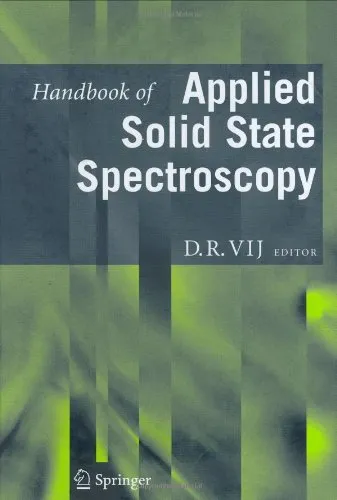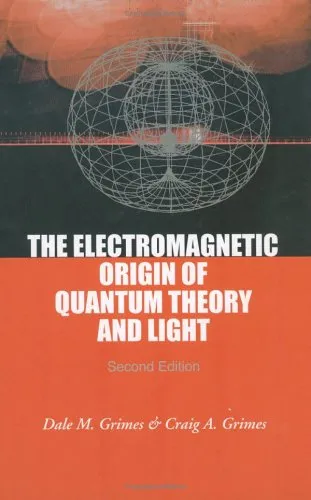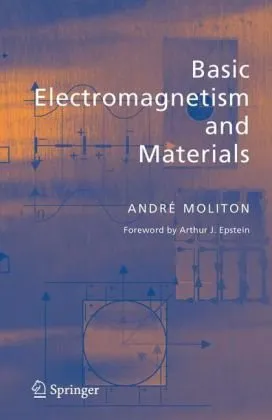Conductors, Semiconductors, Superconductors: An Introduction to Solid State Physics
4.0
بر اساس نظر کاربران

شما میتونید سوالاتتون در باره کتاب رو از هوش مصنوعیش بعد از ورود بپرسید
هر دانلود یا پرسش از هوش مصنوعی 2 امتیاز لازم دارد، برای بدست آوردن امتیاز رایگان، به صفحه ی راهنمای امتیازات سر بزنید و یک سری کار ارزشمند انجام بدینکتاب های مرتبط:
معرفی کلی
کتاب Conductors, Semiconductors, Superconductors: An Introduction to Solid State Physics نویسنده رادلف پی. هوبرنر، راهنمای جامعی است که به بررسی فیزیک حالت جامد میپردازد. این اثر به طور خاص به موضوعات اصلی در زمینه رساناها، نیمهرساناها و ابررساناها توجه دارد و هدف دارد تا دانشجویان و علاقهمندان به فیزیک و علم مواد را با اصول پایه و مفاهیم کلیدی آشنا سازد.
خلاصه دقیق کتاب
فصل ابتدایی کتاب به معرفی ساختارهای کریستالی و خواص فیزیکی مواد جامد اختصاص دارد. در این بخش، نقش اساسی الکترونها و شبکههای کریستالی در تعیین ویژگیهای رسانایی برق توضیح داده میشود. در فصل دوم، مفهوم رساناها با جزئیات بررسی میشود و پدیدههایی مانند انتقال الکترونها در رساناها و تأثیر میدانهای مغناطیسی بررسی میگردند.
نیمهرساناها موضوع فصل سوم کتاب هستند که در آن ساختار باند انرژی و انواع مواد نیمهرسانا مورد بحث قرار میگیرد. همچنین، نحوه عملکرد و کاربردهای دستگاههای نیمهرسانا همچون دیودها و ترانزیستورها در این بخش تشریح میشود. فصل چهارم به پدیده ابررسانایی و رفتار مواد در دماهای بسیار پایین پرداخته و ویژگیهای منحصر بهفرد ابررساناها همراه با کاربردهای صنعتی و تکنولوژیکی آنها شرح داده میشود.
نکات کلیدی
- توضیح جامع اصول کریستالوگرافی و ساختار مواد جامد.
- تحلیل عمیق از انتقال الکترونها در مواد رسانا و تأثیرات محیطی.
- تشریح عملکرد و خصوصیات نیمهرساناها و کاربردهای فنی آنها.
- شناسایی خصوصیات و اهمیت فناوری ابررسانایی.
نقلقولهای معروف از کتاب
"Understanding the fundamental principles of solid state physics is essential for advancing technology and innovation."
"The exploration of superconductors opens up possibilities for future scientific breakthroughs."
اهمیت این کتاب
این کتاب نه تنها به عنوان یک منبع آموزشی برای دانشجویان و پژوهشگران فیزیک ظاهر میشود، بلکه به خاطر نگرش تحلیلی و مدلهای مفهومی که ارائه میدهد، میتواند به خوانندگان کمک کند تا درک عمیقتری از اصول فیزیکی مواد جامد پیدا کنند. اهمیت این کتاب در کاربردهای گستردهای است که دارد؛ از صنعت الکترونیک گرفته تا تحقیقات پیشرفته در زمینه مواد نوین. خواندن این کتاب میتواند زمینهساز نوآوریهایی مهم در فناوریهای آینده باشد.
با استفاده از این کتاب، مخاطبان میتوانند نه تنها دانش فیزیک حالت جامد خود را تقویت کنند، بلکه مهارتهای تحلیلی و تحقیقات خود را بهبود بخشند.
Introduction to Conductors, Semiconductors, Superconductors: An Introduction to Solid State Physics
The book 'Conductors, Semiconductors, Superconductors: An Introduction to Solid State Physics' offers an extensive exploration of the fundamental principles of solid state physics, targeting readers with a scientific curiosity about the microscopic behaviors of different materials. Written by Rudolf P. Huebener, the text serves as both an introductory guide and a detailed study for those invested in the pursuit of physics, engineering, and material sciences.
Detailed Summary of the Book
This book meticulously delves into the intricate world of solid-state physics, organizing its content into three main sections: conductors, semiconductors, and superconductors. Each section is meticulously crafted to provide a thorough understanding of the respective topics.
In the section dedicated to conductors, the book discusses the fundamental role of electrons and the principles governing electrical conductivity. It thoroughly examines Ohm's law, electron theory, and the behavior of electrons in metallic lattices.
The semiconductor section gives insight into the formation of band structures and the movement of charge carriers within these materials. Explored are both intrinsic and extrinsic semiconductors, including key elements such as silicon and germanium, and advanced topics like junctions and transistors.
The final section on superconductors is distinct in its discussion of their unique ability to exhibit zero electrical resistance below critical temperature thresholds. The text highlights key phenomena such as the Meissner effect, anisotropic properties, and superconductivity applications in modern technology.
Key Takeaways
- Understanding the fundamental differences between conductors, semiconductors, and superconductors.
- In-depth knowledge of electron behavior in various materials.
- Applications of solid state physics in modern technological advancements.
- Comprehension of advanced topics such as the Meissner effect and band gap theory.
Famous Quotes from the Book
"Understanding the microscopic world of electrons can unlock immense technological possibilities, bridging the gap between theoretical physics and practical engineering."
"In the realm of superconductivity, what was once considered paradoxical becomes the foundation for next-generation innovation."
Why This Book Matters
'Conductors, Semiconductors, Superconductors: An Introduction to Solid State Physics' is an essential read for anyone pursuing a career in physics or engineering. This book shines a light on the practical applications of solid state physics that form the backbone of technological infrastructure in various industries. From the circuit boards that power computers to the advanced superconducting materials that promise revolutionary advancements in energy transmission, understanding the principles outlined in this book is critical.
Moreover, the text affords readers a comprehensive foundation, allowing them to appreciate both current developments and historical insights into how solid state physics has shaped contemporary scientific thought and industrial processes.
The depth of knowledge encapsulated within these pages not only serves academic pursuits but also inspires innovation, making it a cornerstone text for students, researchers, and professionals alike.
دانلود رایگان مستقیم
شما میتونید سوالاتتون در باره کتاب رو از هوش مصنوعیش بعد از ورود بپرسید
دسترسی به کتابها از طریق پلتفرمهای قانونی و کتابخانههای عمومی نه تنها از حقوق نویسندگان و ناشران حمایت میکند، بلکه به پایداری فرهنگ کتابخوانی نیز کمک میرساند. پیش از دانلود، لحظهای به بررسی این گزینهها فکر کنید.
این کتاب رو در پلتفرم های دیگه ببینید
WorldCat به شما کمک میکنه تا کتاب ها رو در کتابخانه های سراسر دنیا پیدا کنید
امتیازها، نظرات تخصصی و صحبت ها درباره کتاب را در Goodreads ببینید
کتابهای کمیاب یا دست دوم را در AbeBooks پیدا کنید و بخرید
1420
بازدید4.0
امتیاز0
نظر98%
رضایتنظرات:
4.0
بر اساس 0 نظر کاربران
Questions & Answers
Ask questions about this book or help others by answering
No questions yet. Be the first to ask!

